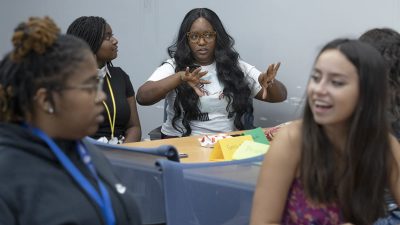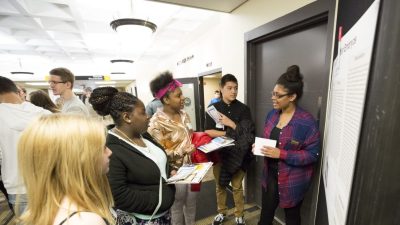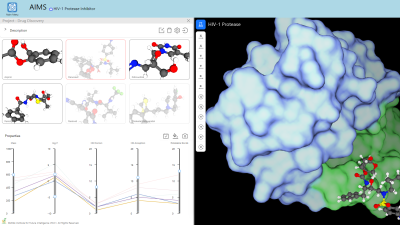A cultural approach for providing higher education and career pathways to Navajo youth interested in biomedical or healthcare-related professions
In 2016, Native American people in science and engineering formed only 0.3% of the graduate student population, specifically constituting 0.15% in engineering and 0.38% in the sciences (Bright and Jones, 2020). National Science Foundation (NSF) data from 2018 show that the percentages of Native American people earning master’s degrees and PhDs in science and engineering are 0.4 and 0.3, respectively (NCES, 2018). According to a report from the Association of American Medical Colleges (AAMC), in 2021 there were only 2,583 active physicians who identified as American Indian or Alaska Native, which is 0.3% of total active physicians in the US. Similar numbers are also reflected in other healthcare and medical fields.
The field of science has historically marginalized indigenous knowledge, creating barriers for Native American students pursuing careers in STEM. In particular, the field has a history of invalidating indigenous knowledge and can perpetuate inequities in terms of who can access science (by virtue of their demographic background) and what constitutes science knowledge. Mindful pedagogical training through “culturally responsive science teaching” could help address inequities based on (and perpetuated by) demographic and cultural differences.
Diné College, situated in the Navajo Nation, is committed to supporting its predominantly Navajo student population in pursuing various science programs. However, the college acknowledges the challenges faced by Native American students in accessing career pathways in science. An example of how Diné College is proactively helping to address this issue is the initiation of CONVOY, a 5-year education and professional development program with youth from local junior and high schools across the Navajo nation. CONVOY, funded through the National Institutes of Health (NIH), and National Institute of General Medical Science’s (NIGMS) Science Education Partnership Award (SEPA) program, aims to engage junior and high school students from local communities across the Navajo Nation, to prepare them for college and careers in biomedical sciences while staying connected with their Indigenous culture, knowledge, and foundation. This project is headed by Dr. Shazia Tabassum Hakim, professor of Biomedical Sciences and Microbiology at Diné College’s Tuba City, Arizona center.
Beginning in the summer of 2024, a cohort of 20 students from local junior and high schools will join 4 student mentors from Diné College in a 10-week summer internship program where students will gain practical experience in laboratory and field activities related to microbiology, molecular biology, genetics, and community health. This course content will align with the Next Generation Science Standards (NGSS) ‘Structure and Function’ performance expectation.
This summer internship will be followed by another 10-week commitment in the fall where students will work on individual projects and apply what they’ve learned by participating in the organization and implementation of local community Science Cafés and Health Fairs. Over the full 5 years of the grant, a total of 100 school students (participants/mentees) and 20 college students (mentor avatars) are expected to benefit from the CONVOY program. Additionally, participants will have the opportunity to earn college credit through dual enrollment at Diné College, further nurturing their interest in scientific pursuits.
The CONVOY framework incorporates a near-peer mentoring model, pairing junior high school and high school students with undergraduate mentors from Diné College. This mentorship aims to foster academic excellence and career development, encouraging participants to present their research projects at state and national professional forums, thereby laying the groundwork for future leadership in biomedical and health sciences initiatives.
CONVOY goals will be related to the Dine Educational Philosophy, Sa’ah Naaghei Bek’eh Hozhoon, the Diné traditional living system, that places Dine’ life in harmony with the natural world and the universe. Nitsahakees(Thinking), Nahat’a (Planning), Iina (Living), and Siih Hasin (Assuring) are processes found in all aspects of nature. This unique educational philosophy and mission is grounded in Navajo cultural traditions. With the hope and expectation that participation in CONVOY will serve as a catalyst for participants to in some way support the health needs of their local communities, an informed understanding of relevant cultural knowledge and philosophy will surely aid them in being more effective in their future career and academic goals.
Rockman et al Cooperative is serving as the program’s external evaluator. REA will provide periodic updates about the development and implementation of CONVOY throughout the project.
For more information about the CONVOY program, please contact Professor Dr. Shazia Tabassum Hakim (stabassum@dinecollege.edu)






